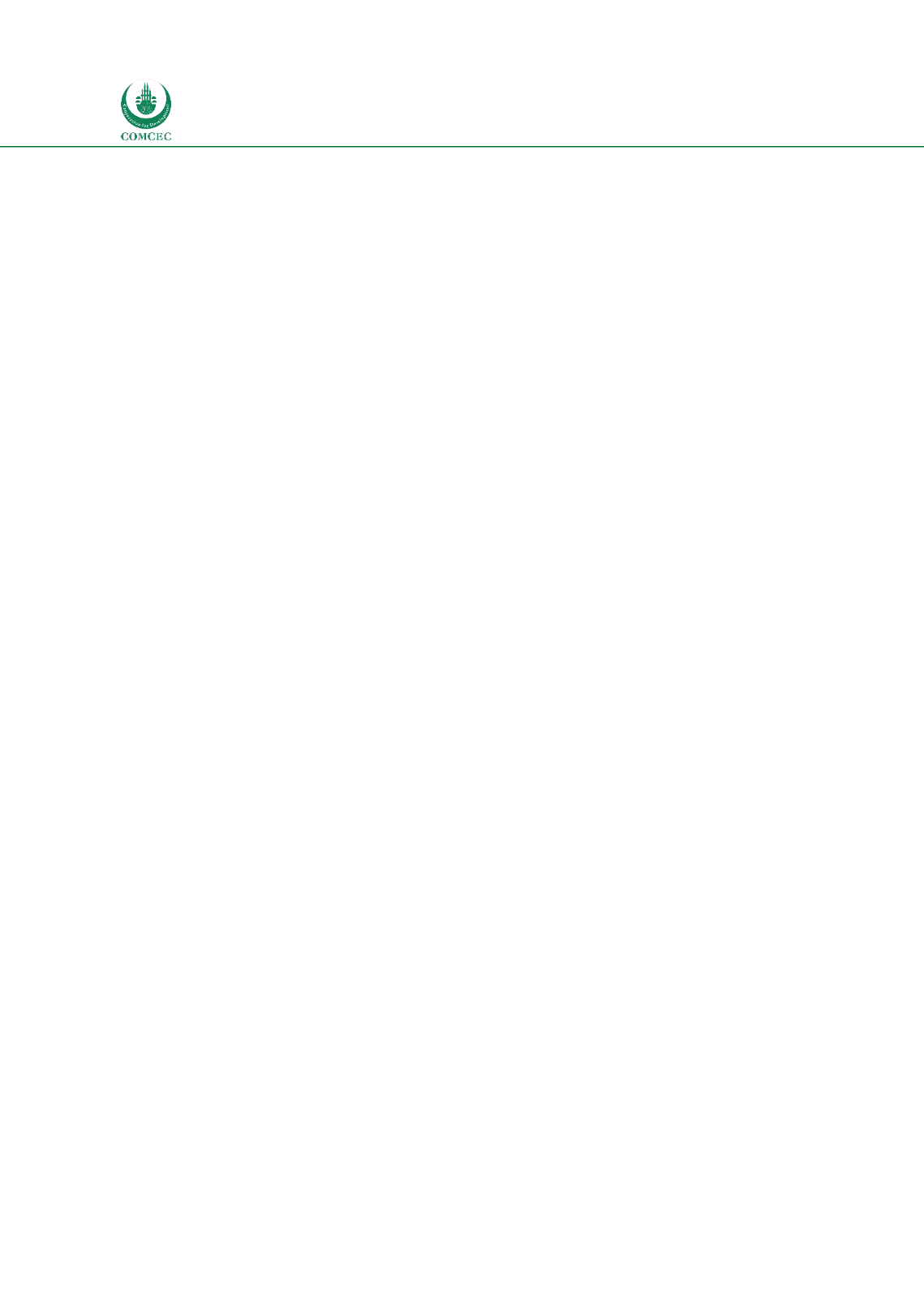

National and Global Islamic Financial Architecture:
Problems and Possible Solutions for the OIC Member Countries
96
The capital of the Islamic financial institutions consists of only Tier 1 core capital. At present,
there are no
Shariah
compliant instruments to meet the Basel III additional Tier 1 and Tier 2
capital requirements as there are no
Musharaka Sukuk
and
Mudarabah/Wakalah Sukuk
issued
by the Islamic financial institutions which could qualify as additional Tier 1 and Tier 2
respectively. The Supervisory Departments also monitor some key financial soundness
indicators (FSIs) for all banks. For Islamic banks, the indicators as suggested by IFSB are
monitored.
4.5.3. Shariah Governance Framework
In Nigeria, there is no central national
Shariah
board. Rather, CBN has established a
Shariah
Supervisory Board (SSB) known as the Financial Regulation Advisory Council of Experts
(FRACE) and
Takaful
Advisory Council (TAC) which has been established in NAICOM while the
SEC has no such body. These Councils act as advisory bodies on
Shariah
issues and also review
and approve product papers/and advert materials emanating from Islamic financial
institutions as well as screen and approve the appointment of the institutions’ members of the
Advisory Committee of Experts (ACE), which is the equivalent of a
Shariah
Advisory Committee
(SAC).
The Guidelines on
Shariah
Governance and
Takaful
issued by CBN in 2010 and NAICOM in
2013 respectively clearly states that all licensed Islamic financial institutions should establish
an Advisory Committee of Experts (ACE) that must be approved by the regulators’ Advisory
Council of Experts. In 2013, SEC issued standards requiring Islamic funds and issuers of
Sukuk
to appoint a
Shariah
adviser who could be either a person or a corporate body.
According to the CBN and NAICOM’s guidelines, the Advisory Committee of Experts should
directly report to the Board of Directors of the institution with a dotted line reporting a
relationship to the MD/CEO. It also requires that the Advisory Committee of Experts have a
minimum composition of three (3) members who should be individuals and not corporate
bodies and must have an academic qualification or possess necessary knowledge in the
sciences of the
Shariah
with particular specialization in the field of Islamic
Transactions/Commercial Jurisprudence (
fiqhul mu’amalat
). It also recommended that
members should have good knowledge of
Usul al Fiqh
, written Arabic, spoken Arabic and
English, as well as good exposure in the areas of business or finance especially Islamic Finance.
The appointment of the Advisory Committee of Expert members should be for a renewable
term of four years subject to a maximum of three terms. The guidelines also provided the basis
for disqualifying Advisory Committee of Expert members as well as imposing restrictions on
the members such as not allowing any individual to belong to more than one Advisory
Committee of Expert of financial institutions in the same industry.
The guidelines further identified the duties and the responsibilities of the Advisory Committee
of Expert to include, among others, advising the institution’s Board and Management on
Shariah
related matters, reviewing and endorsing
Shariah
related policies and guidelines,
endorsing and validating documents for new products and services to ensure compliance with
Shariah
requirements, and issuing written
Shariah
opinions on new products, ensuring that the
necessary ex-post considerations are observed after the product offering stage, assisting or
advising related parties to the institution on
Shariah
matters upon request, providing support
to the institution in respect of questions or queries that may be raised regarding the
Shariah
compliance of its products, issuing recommendations on how the institution can best fulfill its
















